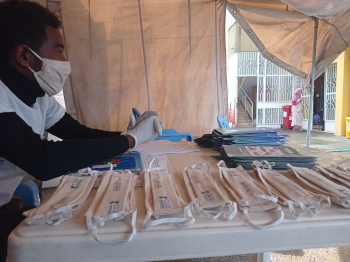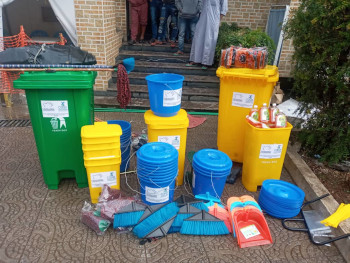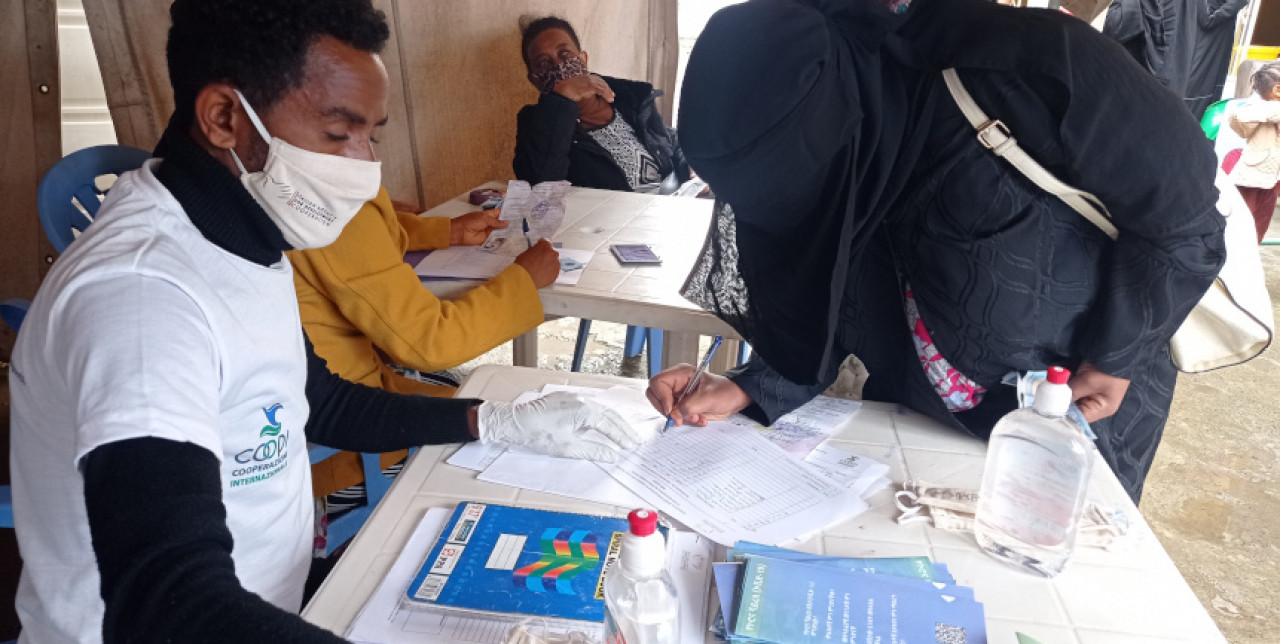30-09-2021 | di COOPI
Ethiopia. Emergency support to returning migrants in quarantine
In June 2021, following a new agreement between the Government of Ethiopia and the Kingdom of Saudi Arabia, a mass repatriation began, with 41.485 Ethiopians entering in just over three weeks. The two quarantine centres, where COOPI operated from May to September through the project "Emergency WASH support to returning migrants in the two Quarantine Centres in Addis Ababa" funded by Italian Development Cooperation Agency (AICS), were tested and hosted 5.000 Ethiopians in a very short period of time.

"In cooperation with several international organisations, the emergency's response was prompt and effective and the ability to support returning migrants was qualitatively very satisfactory. COOPI and AICS, together, have been able to support more than 10,000 Ethiopian returnees: women, man and children in a particularly vulnerable condition, worsened by the difficult period the country is going through", explains Davide Prata, COOPI Head of Mission.
The project "Emergency WASH support to returning migrants in the two Quarantine Centres in Addis Ababa" aimed at improving the hygienic and sanitary conditions of the facilities, ensuring access to water, supporting proper waste management and promoting users' awareness on good hygiene practices and COVID-19 prevention.

The history of returning migrants, "returnees", being repatriated to Ethiopia from the Kingdom of Saudi Arabia started in November 2017, when an initial agreement was signed between the two governments. Since then, 415,000 Ethiopian nationals have been repatriated, many of them after years of detention for lack of regular documents in the Saudi state.
The COVID-19 scourge was the reason for blocking such returns from March to November 2020, with a significant impact on the number of Ethiopians stuck in Saudi Arabia. In November 2020, flights resumed and in 2021 there was a clear emergency situation due to the high number of returnees and migrants’ reception capacity.




 Ethiopia
Ethiopia